# December 11: A Day That Shaped History
December 11 stands as one of history’s most eventful days, witnessing the rise and fall of empires, groundbreaking discoveries, and moments that shaped our modern world across centuries of human achievement.
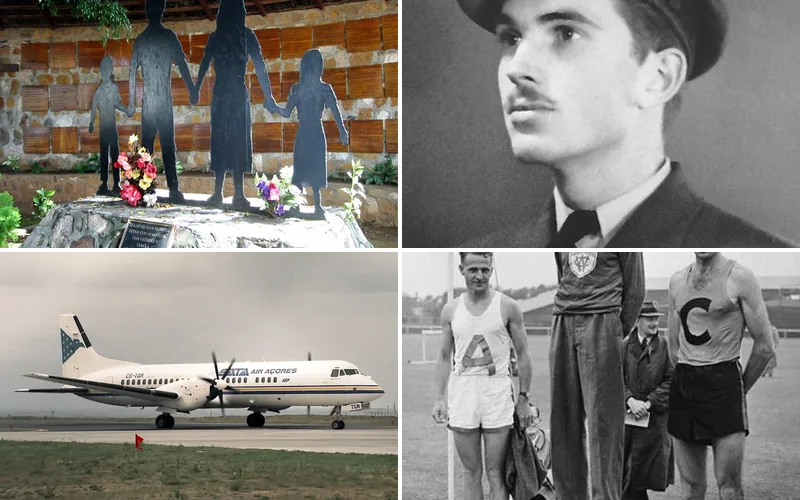
Politics and Government Events on December 11
1941 – Germany and Italy Declare War on United States
The Axis powers dramatically escalated World War II by declaring war on America following Pearl Harbor. This decision brought the United States fully into the European theater of operations.
Hitler’s declaration unified American public opinion behind total war effort. The decision proved strategically catastrophic for Germany, creating a two-front war against industrial superpowers.
1936 – King Edward VIII Abdicates British Throne
Edward VIII’s abdication became effective, ending the constitutional crisis that gripped the British Empire. His decision to marry American divorcée Wallis Simpson shocked the monarchy and Commonwealth nations.
The abdication cleared the path for George VI to assume the throne. This unexpected succession profoundly altered the royal family’s destiny and strengthened constitutional monarchy principles.
1931 – Statute of Westminster Establishes Commonwealth Equality
The British Parliament granted legislative equality to Commonwealth dominions including Canada, Australia, and South Africa. This landmark legislation fundamentally transformed the British Empire’s governmental structure.
Former colonies gained unprecedented autonomy in domestic and foreign affairs. The statute marked the peaceful transition from empire to commonwealth of equal nations.
1958 – Upper Volta and Dahomey Gain Self-Government
French colonies in West Africa achieved self-government while joining the French Community. Upper Volta became modern-day Burkina Faso, while Dahomey transformed into present-day Benin.
These transitions represented France’s evolving approach to decolonization in Africa. The new republics maintained economic ties with France while gaining political independence.
1920 – British Forces Retaliate in Cork
British forces burned and looted numerous buildings in Cork city following an IRA ambush. Civilians reported widespread beatings, shootings, and verbal abuse by occupying forces.
The violent retaliation intensified Irish nationalist sentiment against British rule. These events accelerated the push toward Irish independence negotiations.
1864 – Che Guevara Addresses United Nations
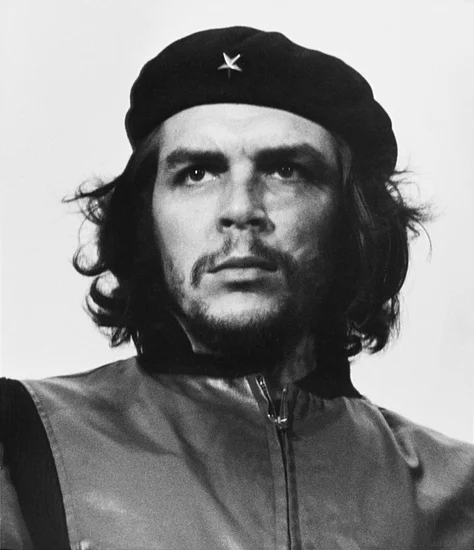
The revolutionary leader spoke at the UN General Assembly in New York City. His appearance represented Cuba’s defiant stance against American foreign policy in Latin America.
Guevara’s speech articulated Third World grievances against Western imperialism. The address elevated his international profile as a symbol of revolutionary resistance.
Military and Naval History on December 11
1917 – British General Allenby Enters Jerusalem
General Edmund Allenby entered Jerusalem on foot and declared martial law during World War I. His respectful approach contrasted sharply with previous military conquests of the holy city.
The capture ended four centuries of Ottoman control over Jerusalem. Allenby’s symbolic gesture of walking rather than riding demonstrated reverence for the city’s religious significance.
1941 – Japan Suffers First Naval Losses at Wake Island
The Imperial Japanese Navy experienced its first surface vessel losses during the Battle of Wake Island. American defenders inflicted unexpected damage on the seemingly invincible Japanese fleet.
The defeat temporarily halted Japanese expansion in the Pacific. Wake Island’s resistance boosted American morale during the darkest days following Pearl Harbor.
1941 – Poland Declares War on Japan
Poland’s government-in-exile declared war on the Empire of Japan following America’s entry into the Pacific conflict. This declaration demonstrated Polish solidarity with the Allied cause.
The symbolic gesture reinforced Poland’s commitment to fighting Axis powers globally. Polish forces would later serve with distinction in various theaters of World War II.
1981 – El Mozote Massacre in El Salvador
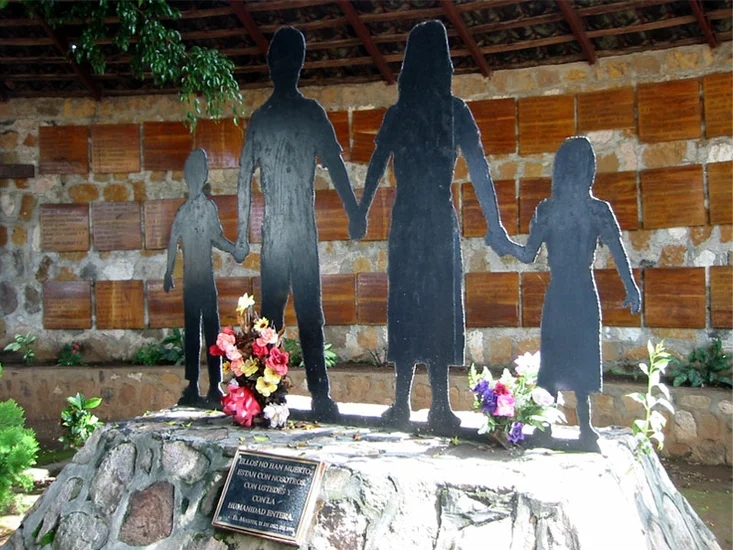
Salvadoran armed forces killed an estimated 900 civilians in an anti-guerrilla campaign. The massacre became one of the most notorious atrocities of the Salvadoran Civil War.
International investigations later confirmed the systematic nature of the killings. The tragedy highlighted the brutal methods employed during Central American conflicts.
Science and Discovery Milestones on December 11
1901 – Marconi Transmits First Transatlantic Radio Signal
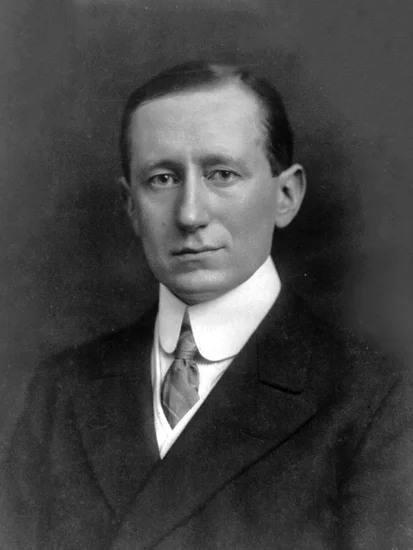
Guglielmo Marconi successfully transmitted the first transatlantic radio signal from Cornwall, England to Newfoundland. The simple Morse code message “S” crossed 2,100 miles of ocean.
This breakthrough revolutionized global communications and navigation. Marconi’s achievement laid the foundation for modern wireless technology and international broadcasting.
1972 – Apollo 17 Lands on the Moon
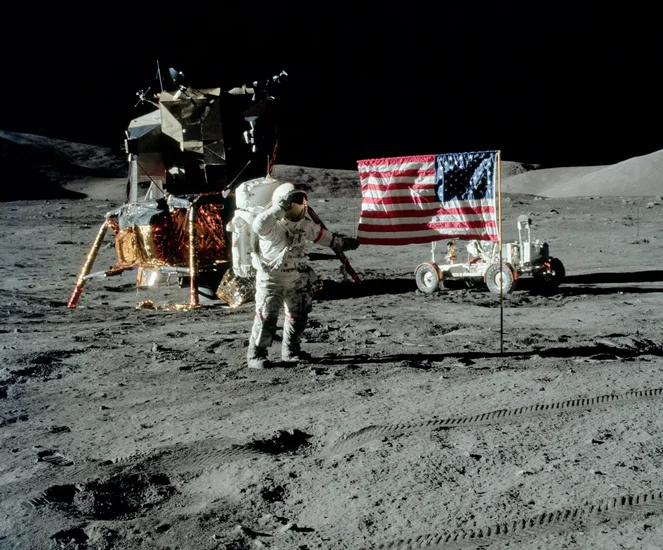
Apollo 17 became the sixth and final Apollo mission to land on the Moon. The crew conducted extensive geological surveys and collected valuable lunar samples.
This mission marked humanity’s last crewed lunar landing to date. The astronauts’ discoveries advanced scientific understanding of the Moon’s formation and composition.
2020 – FDA Approves First COVID-19 Vaccine
The Food and Drug Administration issued Emergency Use Authorization for the Pfizer-BioNTech COVID-19 vaccine. This approval marked the first COVID-19 vaccine authorized by the agency.
The historic decision launched the largest vaccination campaign in American history. The vaccine’s rapid development and approval demonstrated unprecedented scientific collaboration.
1978 – Superfund Environmental Act Enacted
The U.S. Congress enacted the Comprehensive Environmental Response, Compensation, and Liability Act. This legislation created the Superfund program to clean up hazardous waste sites.
The act established corporate liability for environmental contamination. Superfund became America’s primary tool for addressing the nation’s worst pollution disasters.
Cultural and Arts Events on December 11
1913 – Mona Lisa Recovered in Florence

Leonardo da Vinci’s masterpiece was recovered in Florence, Italy, over two years after its theft from the Louvre. Italian nationalist Vincenzo Peruggia was immediately arrested for the crime.
The theft had made the Mona Lisa world-famous beyond artistic circles. The painting’s recovery generated massive international media attention and public fascination.
1907 – New Zealand Parliament Buildings Destroyed by Fire
The New Zealand Parliament Buildings were almost completely destroyed by a devastating fire. The blaze consumed centuries of legislative history and architectural heritage.
The destruction prompted construction of the current Parliament complex. New Zealand’s democratic institutions continued functioning despite the catastrophic loss.
1957 – Musidora Dies, Silent Film Pioneer
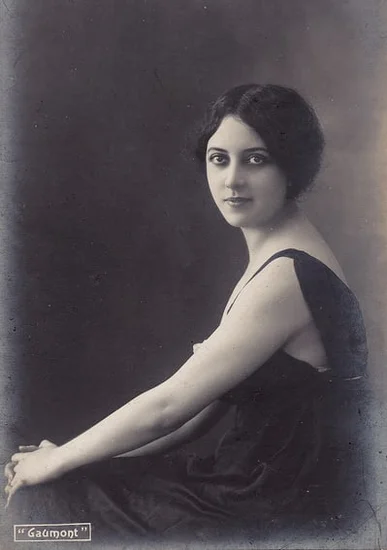
French actress, director, and producer Musidora died, ending an era of silent cinema. She had pioneered female roles in film production and challenged gender conventions.
Her work in the serial “Les Vampires” established her as an icon of early cinema. Musidora’s contributions advanced women’s participation in the film industry.
Religious and Social Events on December 11
1925 – Pope Introduces Feast of Christ the King
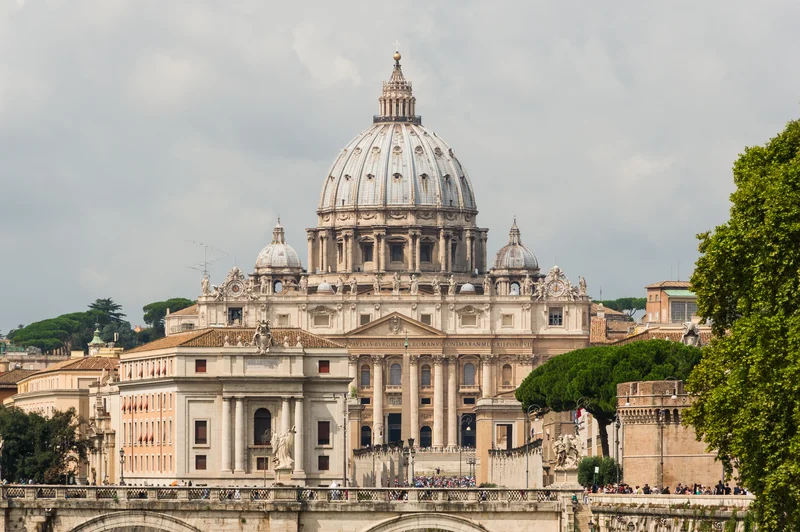
Pope Pius XI issued the papal encyclical Quas primas, introducing the Feast of Christ the King. This new liturgical celebration emphasized Christ’s sovereignty over all creation.
The feast responded to growing secularization in post-World War I Europe. Catholic communities worldwide adopted this annual celebration of Christian kingship.
1946 – UNICEF Established
The United Nations established the International Children’s Emergency Fund to aid war-torn Europe’s children. UNICEF initially focused on providing food, clothing, and healthcare to displaced youth.
The organization evolved into a permanent fixture of international humanitarian aid. UNICEF’s programs expanded globally to address child welfare and development issues.
1934 – Bill Wilson’s Last Drink
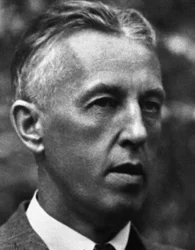
Bill Wilson, co-founder of Alcoholics Anonymous, took his last drink and entered treatment permanently. This personal milestone preceded the founding of AA’s recovery program.
Wilson’s sobriety journey became the foundation for the twelve-step program. His experience helped millions worldwide overcome alcohol addiction through peer support.
Business and Economic Events on December 11
2008 – Bernie Madoff Arrested for Securities Fraud
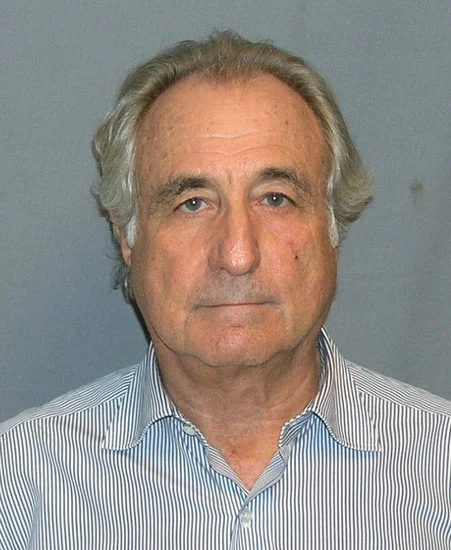
Bernie Madoff was arrested and charged with operating a $50 billion Ponzi scheme. The massive fraud devastated investors and shook confidence in financial markets.
The scandal exposed regulatory failures in securities oversight. Madoff’s arrest initiated one of the largest financial fraud investigations in American history.
2001 – China Joins World Trade Organization
China officially joined the World Trade Organization, integrating the world’s most populous nation into global trade systems. This membership required extensive economic reforms and market liberalization.
China’s WTO accession transformed international commerce and manufacturing. The decision accelerated China’s rise as a global economic superpower.
1971 – Maurice McDonald Dies
Maurice McDonald, co-founder of McDonald’s restaurant chain, died at age 69. He and his brother Richard had revolutionized fast food service with their innovative assembly-line approach.
The McDonald brothers’ system became the template for modern fast food. Their efficiency concepts transformed the restaurant industry and American dining habits.
1978 – Lufthansa Heist Committed
A group led by Lucchese family associate Jimmy Burke committed the Lufthansa heist at JFK Airport. The robbery netted the largest cash haul in American history at that time.
The sophisticated operation inspired numerous books and films. The heist demonstrated organized crime’s ability to execute complex criminal enterprises.
Transportation and Infrastructure on December 11
1990 – Interstate 75 Fog Disaster

Multiple fatal collisions occurred during a massive fog disaster on Interstate 75 in Tennessee. The chain-reaction accidents resulted in 12 deaths and 42 injuries.
The tragedy highlighted the dangers of driving in severe weather conditions. The disaster prompted improvements in highway safety protocols and weather monitoring systems.
1998 – Thai Airways Flight 261 Crashes

Thai Airways Flight 261 crashed near Surat Thani Airport, killing all 101 people aboard. The Airbus A310-200 accident was attributed to pilot spatial disorientation.
The tragedy prompted enhanced pilot training in adverse weather conditions. Aviation safety protocols were strengthened to prevent similar navigation errors.
1999 – SATA Air Flight 530M Crashes in Azores

SATA Air Açores Flight 530M crashed into Pico da Esperança on São Jorge Island, killing 35 passengers and crew. The regional flight was approaching the airport in difficult weather conditions.
The accident highlighted challenges of island aviation operations. Portuguese authorities implemented enhanced safety measures for inter-island flights.
Sports and Recreation on December 11
2009 – Angry Birds Released Internationally
Finnish developer Rovio Entertainment released the hit mobile game Angry Birds internationally on iOS. The simple yet addictive game became a global phenomenon.
The game’s success revolutionized mobile gaming and launched a multimedia franchise. Angry Birds demonstrated the potential of smartphone gaming platforms.
2004 – Arthur Lydiard Dies
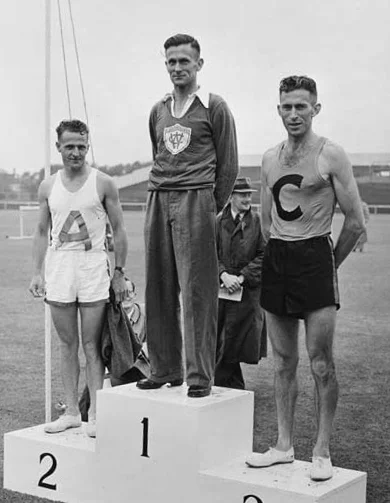
New Zealand running coach Arthur Lydiard died, ending a legendary career in athletics. His training methods revolutionized distance running and produced numerous Olympic champions.
Lydiard’s periodization system became the standard for endurance training worldwide. His influence extended far beyond New Zealand to global athletics programs.
2012 – Ravi Shankar Dies

Indian sitar master Ravi Shankar died at age 92, concluding a career that brought Indian classical music to global audiences. His collaborations with Western musicians bridged cultural divides.
Shankar’s influence extended to rock, jazz, and world music genres. His artistic legacy demonstrated music’s power to transcend cultural boundaries.
Notable Births on December 11
1918 – Aleksandr Solzhenitsyn Born

Russian novelist and historian Aleksandr Solzhenitsyn was born, destined to become one of the 20th century’s most influential writers. His works would expose the horrors of Soviet gulags.
Solzhenitsyn’s courage in documenting totalitarian oppression earned him the Nobel Prize in Literature. His writings provided crucial testimony about life under communist rule.
1911 – Naguib Mahfouz Born
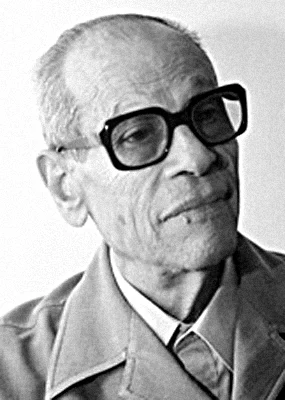
Egyptian author Naguib Mahfouz was born in Cairo, beginning a literary career that would span decades. His novels captured the social transformation of modern Egypt.
Mahfouz became the first Arabic-language writer to win the Nobel Prize in Literature. His Cairo Trilogy remains a masterpiece of 20th-century world literature.
1943 – Rita Moreno Born

Puerto Rican actress, singer, and dancer Rita Moreno was born, beginning an entertainment career that would break barriers for Latino performers. Her versatility spanned multiple artistic mediums.
Moreno became one of few performers to achieve EGOT status. Her achievements opened doors for Hispanic artists in American entertainment.
1969 – Viswanathan Anand Born

Indian chess grandmaster Viswanathan Anand was born, destined to become one of the world’s greatest chess players. His rapid playing style revolutionized competitive chess.
Anand became the first Asian to win the World Chess Championship. His success inspired a generation of chess players across India and Asia.
1944 – Brenda Lee Born

American singer-songwriter Brenda Lee was born, beginning a recording career that would make her one of the most successful female vocalists of the early rock era. Her powerful voice belied her small stature.
Lee’s hit songs bridged country and pop music genres. Her recording success established her as a pioneering female artist in rock and roll.
1925 – Paul Greengard Born

American neuroscientist Paul Greengard was born, beginning a research career that would revolutionize understanding of brain function. His work focused on neuronal signal transmission.
Greengard’s discoveries about protein phosphorylation earned him the Nobel Prize in Physiology or Medicine. His research advanced treatment of neurological disorders.
Notable Deaths on December 11
1964 – Sam Cooke Dies
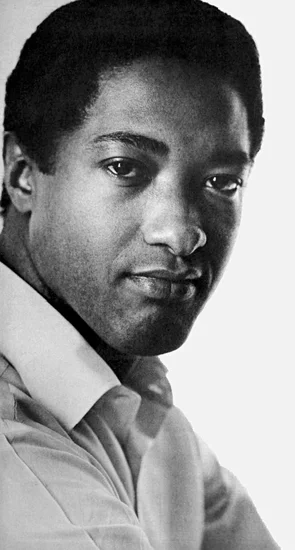
American singer-songwriter Sam Cooke died tragically at age 33, ending one of the most influential careers in popular music. His smooth vocal style helped define soul music.
Cooke’s songs bridged gospel, R&B, and pop music genres. His artistic legacy influenced generations of musicians across multiple musical styles.
1941 – John Gillespie Magee Jr. Dies

American pilot and poet John Gillespie Magee Jr. died in a training accident at age 19. His poem “High Flight” became aviation’s most famous literary work.
Magee’s poetic tribute to flying captured the spiritual essence of aviation. His words continue to inspire pilots and aviation enthusiasts worldwide.
1978 – Vincent du Vigneaud Dies

American biochemist Vincent du Vigneaud died, concluding a distinguished scientific career. His research on sulfur compounds and protein synthesis earned him the Nobel Prize in Chemistry.
Du Vigneaud’s work on oxytocin and vasopressin advanced understanding of hormone function. His discoveries contributed to developments in medical treatments.
2008 – Bettie Page Dies

American model Bettie Page died at age 85, ending a life that had made her an icon of 1950s popular culture. Her pin-up photographs defined an era of American beauty standards.
Page’s influence extended far beyond modeling into fashion and popular culture. Her image became synonymous with mid-century American style and sensuality.
2021 – Anne Rice Dies

American author Anne Rice died at age 80, concluding a prolific writing career that redefined vampire fiction. Her “Vampire Chronicles” series attracted millions of readers worldwide.
Rice’s gothic novels influenced contemporary horror and fantasy literature. Her complex characters and atmospheric settings established new standards for supernatural fiction.
Holidays and Observances on December 11
International Mountain Day
The United Nations designated December 11 as International Mountain Day to raise awareness about mountain ecosystems and their importance. This observance highlights the challenges facing mountain communities worldwide.
Mountain regions provide fresh water, biodiversity, and natural resources for billions of people. The day promotes sustainable mountain development and conservation efforts.
Indiana Day
Indiana celebrates its statehood on December 11, commemorating its admission to the Union in 1816. The state observance highlights Indiana’s contributions to American history and culture.
Indiana’s agricultural and industrial heritage shaped American development. The state’s central location made it crucial to westward expansion and national growth.
National Tango Day in Argentina
Argentina celebrates National Tango Day, honoring the passionate dance that originated in Buenos Aires. The observance recognizes tango’s cultural significance and artistic expression.
Tango represents Argentina’s cultural identity and has spread globally as an art form. The dance embodies the passion and complexity of Argentine social history.
